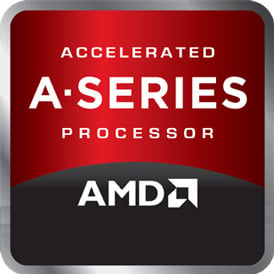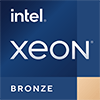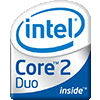
AMD A9-9420 Benchmark, Test and specs
Last updated:
The AMD A9-9420 has 2 cores with 2 threads and is based on the 4. gen of the AMD A series. The processor uses a mainboard with the FP4 socket and was released in Q2/2017. The AMD A9-9420 scores 497 points in the Geekbench 5 single-core benchmark. In the Geekbench 5 multi-core benchmark, the result is 805 points.

| Name: | AMD A9-9420 |
|---|---|
| Family: | AMD A (112) |
| CPU group: | AMD A9-9000 (4) |
| Architecture: | Stoney Ridge (Excavator) |
| Segment: | Mobile |
| Generation: | 4 |
| Predecessor: | -- |
| Successor: | -- |
CPU Cores and Base Frequency
The AMD A9-9420 has 2 CPU cores and can calculate 2 threads in parallel. The clock frequency of the AMD A9-9420 is 3.00 GHz (3.60 GHz). The number of CPU cores greatly affects the speed of the processor and is an important performance indicator.
| CPU Cores / Threads: | 2 / 2 |
|---|---|
| Core architecture: | normal |
| Cores: | 2x |
| Hyperthreading / SMT: | No |
|---|---|
| Overclocking: | No |
| Frequency: | 3.00 GHz |
| Turbo Frequency (1 Core): | 3.60 GHz |
| Turbo Frequency (2 Cores): | 3.00 GHz |
Internal Graphics
The AMD A9-9420 has integrated graphics, called iGPU for short. Specifically, the AMD A9-9420 uses the AMD Radeon R5 (Stoney Ridge), which has 192 texture shaders and 3 execution units. The iGPU uses the system's main memory as graphics memory and sits on the processor's die.
| GPU name: | AMD Radeon R5 (Stoney Ridge) |
|---|---|
| GPU frequency: | 0.85 GHz |
| GPU (Turbo): | No turbo |
| Compute units: | 3 |
| Shader: | 192 |
| Hardware Raytracing: | No |
| Release date: | Q2/2016 |
| Max. displays: | 3 |
|---|---|
| Generation: | 7 |
| Direct X: | 12 |
| Technology: | 28 nm |
| Max. GPU Memory: | 2 GB |
| Frame Generation: | No |
Hardware codec support
A photo or video codec that is accelerated in hardware can greatly accelerate the working speed of a processor and extend the battery life of notebooks or smartphones when playing videos.
| h265 / HEVC (8 bit): | Decode |
|---|---|
| h265 / HEVC (10 bit): | Decode |
| h264: | Decode |
| VP8: | Decode |
| VP9: | Decode |
| AV1: | No |
|---|---|
| AVC: | Decode / Encode |
| VC-1: | Decode |
| JPEG: | Decode / Encode |
Memory & PCIeThe processor can use up to 8 GB memory in 1 (Single Channel) memory channels. The maximum memory bandwidth is 17.1 GB/s. The memory type as well as the amount of memory can greatly affect the speed of the system. |
|
| Memory type: | Memory bandwidth: |
|---|---|
| DDR4-2133 | 17.1 GB/s |
| Max. Memory: | 8 GB |
| Memory channels: | 1 (Single Channel) |
| ECC: | No |
| PCIe: | 3.0 x 8 |
| PCIe Bandwidth: | 7.9 GB/s |
Thermal ManagementThe thermal design power (TDP for short) of the processor is 15 W. The TDP specifies the necessary cooling solution that is required to cool the processor sufficiently. The TDP usually gives a rough idea of the actual power consumption of the CPU. |
|
|---|---|
| TDP (PL1 / PBP): | 15 W |
| TDP (PL2): | -- |
| TDP up: | 25 W |
| TDP down: | 10 W |
| Tjunction max.: | 90 °C |
Technical details
The AMD A9-9420 is made in 28 nm. The smaller the manufacturing process of a CPU, the more modern and energy-efficient it is. Overall, the processor has 2.00 MB cache. A large cache can greatly speed up the processor's speed in some cases such as games.
| Technology: | 28 nm |
|---|---|
| Chip design: | |
| Socket: | FP4 |
| L2-Cache: | -- |
| L3-Cache: | 2.00 MB |
| AES-NI: | Yes |
| Operating systems: |
| Virtualization: | AMD-V |
|---|---|
| Instruction set (ISA): | x86-64 (64 bit) |
| ISA extensions: | SSE4a, SSE4.1, SSE4.2, AVX, FMA3, FMA4 |
| Release date: | Q2/2017 |
| Release price: | -- |
| Part Number: | -- |
| Documents: | -- |
Rate this processor
Benchmark results

The benchmark results for the AMD A9-9420 have been carefully checked by us. We only publish benchmark results that have been created by us or that have been submitted by a visitor and then checked by a team member. All results are based on and fullfill our benchmark guidelines.
Geekbench 5, 64bit (Single-Core)
Geekbench 5 is a cross plattform benchmark that heavily uses the systems memory. A fast memory will push the result a lot. The single-core test only uses one CPU core, the amount of cores or hyperthreading ability doesn't count.

|
AMD FX-8320E
8C 8T @ 4.00 GHz |
||

|
Intel Xeon Bronze 3104
6C 6T @ 1.70 GHz |
||

|
Qualcomm Snapdragon 675
8C 8T @ 2.00 GHz |
||
|
|
AMD A9-9420
2C 2T @ 3.60 GHz |
||

|
MediaTek Dimensity 800
8C 8T @ 2.00 GHz |
||

|
AMD FX-6120
6C 6T @ 4.10 GHz |
||

|
Apple A5
2C 2T @ 1.00 GHz |
||
Geekbench 5, 64bit (Multi-Core)
Geekbench 5 is a cross plattform benchmark that heavily uses the systems memory. A fast memory will push the result a lot. The multi-core test involves all CPU cores and taks a big advantage of hyperthreading.

|
Intel Core2 Duo E7500
2C 2T @ 2.93 GHz |
||
|
|
HiSilicon Kirin 658
8C 8T @ 2.35 GHz |
||

|
Intel Celeron 3215U
2C 2T @ 1.70 GHz |
||
|
|
AMD A9-9420
2C 2T @ 3.00 GHz |
||

|
Qualcomm Snapdragon 650
6C 6T @ 1.80 GHz |
||

|
Intel Atom Z3775
4C 4T @ 1.46 GHz |
||

|
Intel Core i3-4012Y
2C 4T @ 1.50 GHz |
||
iGPU - FP32 Performance (Single-precision GFLOPS)
The theoretical computing performance of the internal graphics unit of the processor with simple accuracy (32 bit) in GFLOPS. GFLOPS indicates how many billion floating point operations the iGPU can perform per second.

|
Intel Core M-5Y31
Intel HD Graphics 5300 @ 0.85 GHz |
||

|
Intel Core M-5Y70
Intel HD Graphics 5300 @ 0.85 GHz |
||

|
AMD A8-4555M
AMD Radeon HD 7600G @ 0.43 GHz |
||
|
|
AMD A9-9420
AMD Radeon R5 (Stoney Ridge) @ 0.85 GHz |
||

|
AMD A9-9425
AMD Radeon R5 (Stoney Ridge) @ 0.85 GHz |
||

|
AMD A8-7200P
AMD Radeon R5 (Kaveri) @ 0.63 GHz |
||

|
Intel Xeon W-11155MRE
Intel UHD Graphics 11th Gen (16 EU) @ 1.25 GHz |
||
Estimated results for PassMark CPU Mark
Some of the CPUs listed below have been benchmarked by CPU-monkey. However the majority of CPUs have not been tested and the results have been estimated by a CPU-monkey’s secret proprietary formula. As such they do not accurately reflect the actual Passmark CPU mark values and are not endorsed by PassMark Software Pty Ltd.

|
AMD Phenom II X4 840
4C 4T @ 3.20 GHz |
||

|
MediaTek Helio G70
8C 8T @ 2.00 GHz |
||

|
AMD Athlon II X4 651K
4C 4T @ 3.00 GHz |
||
|
|
AMD A9-9420
2C 2T @ 3.00 GHz |
||

|
Intel Core i5-4260U
2C 4T @ 2.70 GHz |
||

|
Qualcomm Snapdragon 660
8C 8T @ 2.20 GHz |
||

|
Qualcomm Snapdragon 660 non LTE
8C 8T @ 2.20 GHz |
||
CPU-Z Benchmark 17 (Multi-Core)
The CPU-Z benchmark measures a processor's performance by measuring the time it takes the system to complete all benchmark calculations. The faster the benchmark is completed, the higher the score.

|
AMD A6-5400K
2C 2T @ 3.60 GHz |
||

|
Intel Core2 Duo E6400
2C 2T @ 2.13 GHz |
||

|
Intel Pentium T4300
2C 2T @ 2.10 GHz |
||
|
|
AMD A9-9420
2C 2T @ 3.00 GHz |
||

|
Intel Pentium T3400
2C 2T @ 2.16 GHz |
||

|
AMD A4-5300B
2C 2T @ 3.40 GHz |
||

|
AMD A4-5300
2C 2T @ 3.40 GHz |
||
Cinebench R15 (Single-Core)
Cinebench R15 is the successor of Cinebench 11.5 and is also based on the Cinema 4 Suite. Cinema 4 is a worldwide used software to create 3D forms. The single-core test only uses one CPU core, the amount of cores or hyperthreading ability doesn't count.

|
AMD Phenom II X2 550
2C 2T @ 3.10 GHz |
||

|
Intel Celeron G1820TE
2C 4T @ 2.20 GHz |
||

|
Intel Core M-5Y10c
2C 4T @ 2.00 GHz |
||
|
|
AMD A9-9420
2C 2T @ 3.60 GHz |
||

|
Intel Celeron G1610T
2C 2T @ 2.30 GHz |
||

|
Intel Core i3-2350M
2C 4T @ 2.30 GHz |
||

|
AMD Phenom II X6 1045T
6C 6T @ 3.20 GHz |
||
Cinebench R15 (Multi-Core)
Cinebench R15 is the successor of Cinebench 11.5 and is also based on the Cinema 4 Suite. Cinema 4 is a worldwide used software to create 3D forms. The multi-core test involves all CPU cores and taks a big advantage of hyperthreading.

|
Intel Atom x5-Z8500
4C 4T @ 2.24 GHz |
||

|
Intel Celeron J3160
4C 4T @ 2.24 GHz |
||

|
Intel Celeron N3160
4C 4T @ 2.24 GHz |
||
|
|
AMD A9-9420
2C 2T @ 3.00 GHz |
||

|
Intel Core i5-4302Y
2C 4T @ 2.00 GHz |
||

|
Intel Celeron 3215U
2C 2T @ 1.70 GHz |
||

|
Intel Celeron 3755U
2C 2T @ 1.70 GHz |
||
Benchmarks

Geekbench 5 (SC)
2,488 entries
2,488 entries

Geekbench 5 (MC)
2,461 entries
2,461 entries

FP32 SP (iGPU)
2,042 entries
2,042 entries

PassMark CPU-Mark
2,392 entries
2,392 entries

CPU-Z Benchmark 17 (MC)
733 entries
733 entries

Cinebench R15 (SC)
1,106 entries
1,106 entries

Cinebench R15 (MC)
1,101 entries
1,101 entries

Cinebench R11.5 (SC)
825 entries
825 entries

Cinebench R11.5 (MC)
836 entries
836 entries
Popular comparisons
back to index








